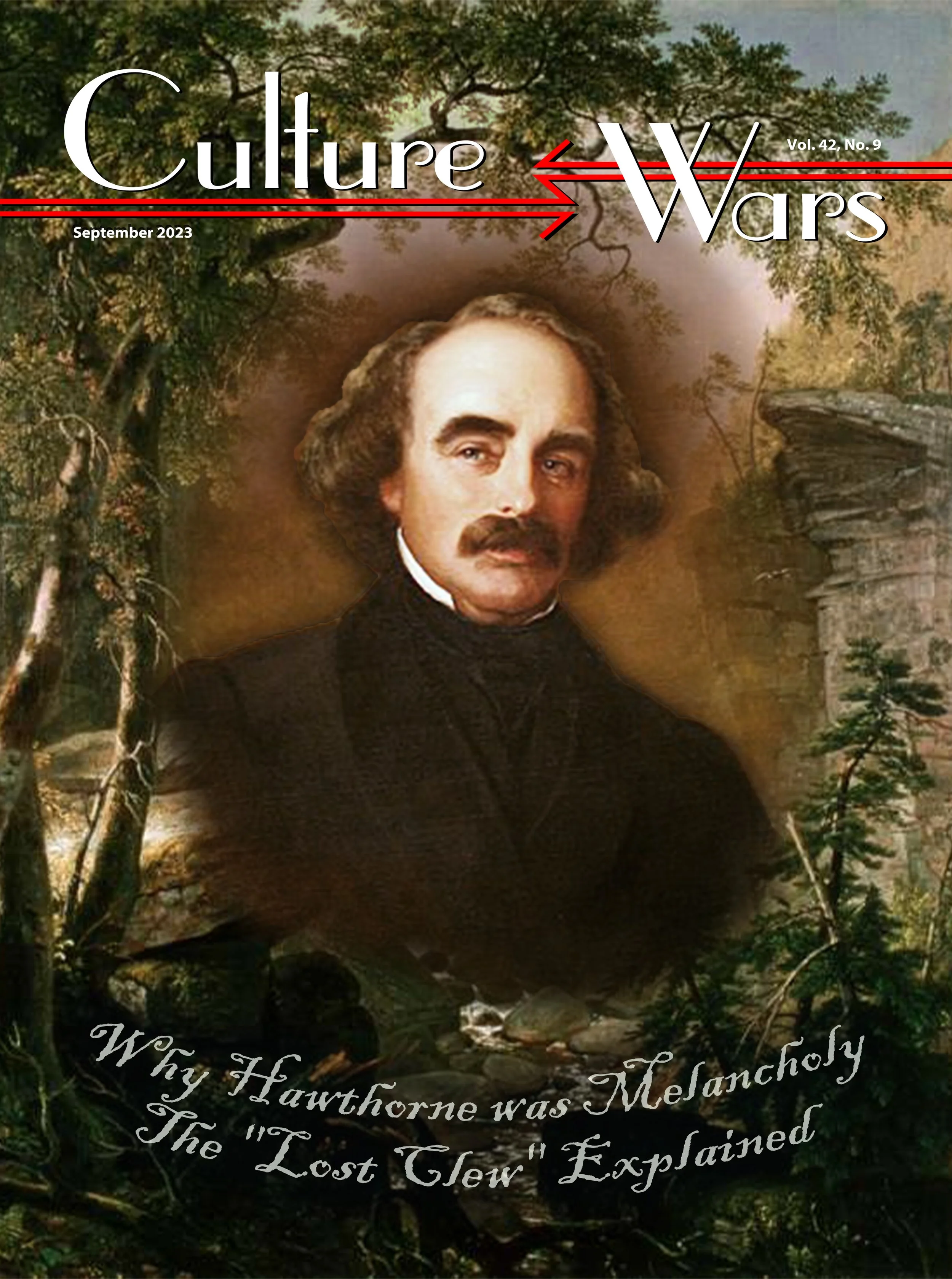The Cancellation of Sinead O’Connor: Ireland’s Tragic Princess
/The cultural canonization of Irish singer Sinead O’Connor jars with the manner in which she was treated by the same “Woke” mainstream media in her native country. Much is made of the fact that she used her public platform to speak out against a culture of child abuse in the Catholic church, that she campaigned in favor of legalizing abortion in Ireland, and that she publicly disclosed her mother’s psychological, emotional and physical abuse of her. These, her eulogists say, are the reasons she was “silenced” by Irish society and the mainstream media (ironically, the same media of which they have been a part right throughout Sinead’s career).
But railing against the Catholic church for real and perceived abuse is more likely to attract plaudits and career superstardom in Ireland. It has been so for the past three decades. When Sinead ripped up a photo of Pope John Paul II on Saturday Night Live in 1992, she scandalized Conservative Americans – but, back home in Ireland, she was a heroine among her peers and her parents’ generation. Those who criticized her (mainly people of her grandparents’ generation who rang radio shows or wrote letters to the newspapers to express their outrage) were quickly put back in their box by a sneering media; they belonged to the past.
Sinead O’Connor
Other public figures (and indeed private individuals) who spoke out against the Church were given an enthusiastic welcome, encouraged to share their story across all the mainstream media. And this has gone on for at least 35 years.
Feminists had been fighting against the Church in Ireland since the 1960s. The sale of contraceptives in drug stores (chemists) was finally legalized in 1985. Sinead came along at the right time to benefit from the positive PR that goes with attacking the Church.
A few years before the Pope-shaming incident, I was a trainee journalist in the newsroom of Ireland’s most prestigious newspaper, The Irish Times, and Sinead had just released her first hit single “Mandinka.” A full broadsheet page was devoted to a fawning feature by the paper’s Women’s Editor about this young single mother who was taking the music business by storm, and I remember thinking: “This girl is the sacred calf of new liberalism.” At the time, Ireland was on the cusp of the age when its people and their media manipulators would collectively cast-off Catholicism and embrace a return to Paganism. The first Divorce Referendum was the hot topic, and its defeat (by a 25 percent margin) was as much down to bad campaigning tactics as any residue of Catholic conservatism (it also helped that there was a Recession and the young were emigrating en masse; the voters were mainly older people).
That was in 1986. Six years later, Sinead ripped up the Pope’s photo; by that time, the Church was Public Enemy Number One as various sex abuse scandals emerged. In 1995 the people voted to legalize divorce (admittedly by a narrow margin, but the concerns expressed were secular: the effects of divorce on children’s mental health and education, the economic consequences for individuals of a marriage break-up and the shortage of housing).
Sinead should have been able to spend the next three decades basking in the reflected glow of her own anti-Conservative campaign and to use her status as an iconoclast to build what is now known as a “brand.” She certainly tried; in 1999, in a colorful challenge to the authority of the Pope and his bishops, she was “ordained” a “priest” by one Bishop Michael Cox of the Irish Orthodox Catholic and Apostolic Church (an organization which is not recognized by the main Church; Bishop Cox was “ordained” by an excommunicated Archbishop).
Her mental health issues should have been a bonus to Sinead’s music career, as they have been for countless musicians and artists of all kinds. But for Sinead there was none of the usual kudos that goes with having “an artistic temperament.” She was openly lampooned in the tabloid press, her struggles with bipolar disorder and her spats with friends were laid bare for all to mock.
Even those she regarded as her friends and allies sneered at her. The former editor of the Irish Daily Mirror, John “Jumbo” Kierans, wrote in his memoir Stop the Press, published in 2009, that he initially “thought she was a looney bin” but later decided she was “extremely manipulative.” He added that she had sent him a lengthy fax of her “ramblings” after she was upset at an article in the paper.
The week Sinead died, Jumbo, now retired, wrote a glowing tribute to her in his weekly Mirror opinion column, saying she would have made a fine journalist, and adding that he had published her fax as an “opinion piece.” He didn’t describe it as “ramblings” this time. Nor did he mention that he had actually given her a weekly column similar to the one he was now writing. I remember it clearly because I was working shifts in the Mirror when Sinead got her big break in journalism; Jumbo had unceremoniously replaced my (admittedly silly) column with Sinead’s, which was fair enough as she was a big star and I had real journalism to do.
But, after just a few weeks, the singer’s column was suddenly, mysteriously canceled and her 2007 stint as a celebrity columnist in the Mirror was never spoken about again to my knowledge, and, while Sinead later (last year 2022) wrote a piece for another newspaper, the broadsheet Sunday Independent, she was largely relegated to the media’s looney bin for the remainder of her life.
I interviewed her in 2011 and immediately realized that she was vulnerable. I was writing a humorous piece about her fake search for Mr. Right at a corny Irish matchmaking festival so it wasn’t an in-depth interview, but I noticed that she was unable to set boundaries when men approached her. I was careful in the resulting article not to make her look like a fool, and the photographer working with me was equally aware of the need to treat her gently.
The media in general continued to ridicule her. Even in 2018, shortly after the Irish people voted overwhelmingly for no-fault abortion, Sinead was made a figure of fun on the front page of the Irish edition of the Sun newspaper, which covered with great relish her row with her former mentor, Bishop Cox, over a church she allegedly bought. “HAIL SCARY” was the headline, followed by this story: “Sinead O’Connor threatens to bash bishop who ordained her and throw him on fire unless he leaves church she owns: The furious singer, who is now known as Magda Davitt, even threatened to go to Offaly personally to remove the bishop’s property from the church…”
Now, in death, she is suddenly an “icon,” a “rebel,” a “Cassandra” who predicted the backlash against the Catholic Church and Ireland’s very own punk princess (the public outpouring of grief at her death is similar to the mass-mourning of Princess Diana, as John McGuirk of the excellent new online newspaper Gript pointed out on Twitter).
What the mainstream media fails to mention is the only plausible reason for having effectively cancelled her for all these years… her comments on Israel’s genocide of the Palestinian people. Indeed, the singer often flew the Palestinian flag at her concerts and in 2014, she canceled a concert in solidarity with an anti-Israeli boycott.
“Nobody with any sanity, including myself, would have anything but sympathy for the Palestinian plight,” she told the Irish music magazine Hot Press. “There’s not a sane person on earth who in any way sanctions what the fuck the Israeli authorities are doing.”…
[…] This is just an excerpt from the September 2023 Issue of Culture Wars magazine. To read the full article, please purchase a digital download of the magazine, or become a subscriber!
Articles:
Culture of Death Watch
Antony Blinken is a Holocaust Liar by E. Michael Jones
The Cancellation of Sinead
O’Connor: Ireland’s Tragic Princessby Geraldine Comiskey
Features
Why Hawthorne was Melancholy:
The “Lost Clew” Explained, Part II by Dr. E. Michael Jones
Reviews
The Other Dangers of Beauty in theLife and Works of Jorge Luis Borges by Octavio Sequeiros
(Endnotes)
Ken Sweeney, “HAIL SCARY Sinead O’Connor threatens to bash bishop who ordained her and throw him on fire unless he leaves church she owns,” The Irish Sun, Sept. 22, 2018, https://www.thesun.ie/tvandshowbiz/3153789/sinead-oconnor-threatens-bash-bishop-churfaxch/
Daniel Hilton, Sinead O’Connor told Israel’s Itamar Ben Gvir his ‘soul had failed’ after death threat,” Middle East Eye, July 27, 2023, https://www.middleeasteye.net/news/sinead-oconnor-letter-israel-itamar-ben-gvir-concert-threat









